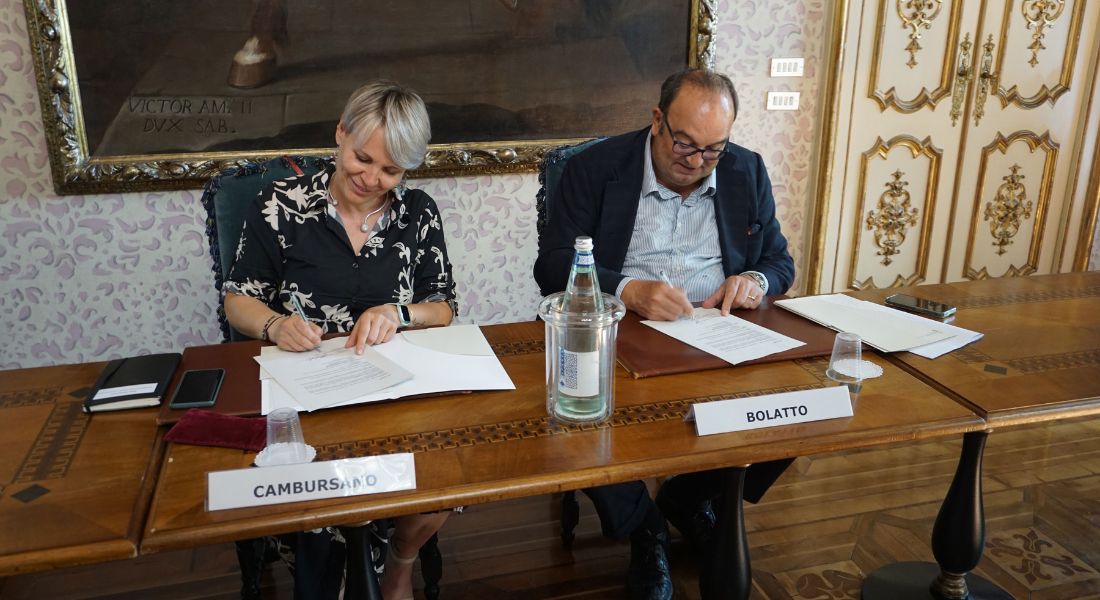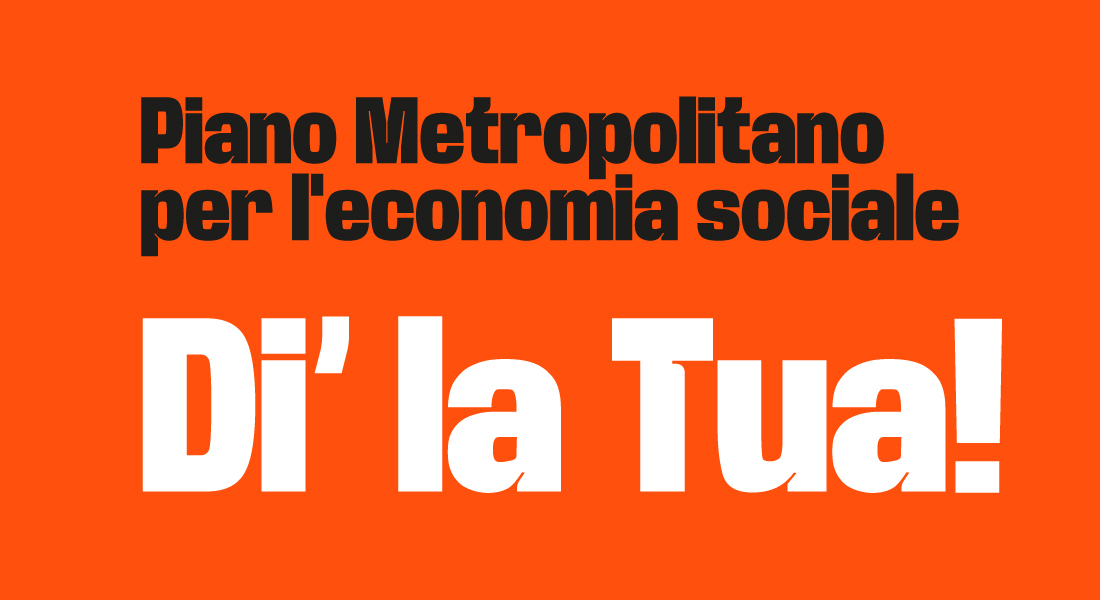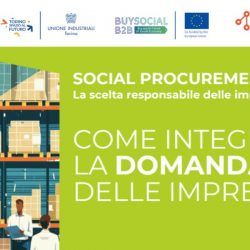Presented today, July 18, 2024, at the Turin Chamber of Commerce, an agreement signed between the Chamber and the Metropolitan City for the drafting of a Plan dedicated to the social economy in the Turin area.
As explained by Guido Bolatto, Secretary General of the Chamber of Commerce: “Once again, Turin is a pioneer in implementing an important initiative strongly desired by European institutions. Our experience, which led to the birth and development of the Torino Social Impact ecosystem involving more than 300 entities, and our extensive network of contacts are fundamental for drafting the local Plan, but also for increasingly accrediting us as strategic interlocutors both nationally, at the working table with the Ministry and the national chamber system, and at the European level, where we have been repeatedly invited to present our activity model”.
According to Sonia Cambursano, Councilor of the Metropolitan City of Turin: “The Metropolitan City of Turin is working to integrate the Action Plan for the social economy with the metropolitan strategic plan, aware that social innovation practices are perfectly aligned with the already identified axes ‘Digitization, innovation, competitiveness, and culture’ and ‘Social inclusion,’ where it is already planned to enhance the business potential of personal and family service economies, community and territorial services, qualifying work, processes, techniques, and skills of the third sector and social enterprises. Moreover, the Metropolitan City of Turin is already investing in the InnoSocialMetro program to increase the capacity of the territory’s micro and small enterprises to generate socially desirable impacts through their for-profit activities: we have made financial support available, consisting of an interest subsidy and a non-repayable grant, for a total investment of 1.3 million euros”.
According to Mario Calderini, professor at the Polytechnic University of Milan and spokesperson for Torino Social Impact: “The background of this initiative is drawn by community documents that assign social enterprises a role not only in welfare and redistribution but also in industrial and economic development, considering the social and impact economy within the perimeter of industrial policies for more equitable and inclusive growth. The path outlined by Turin and some other territories moving similarly requires this paradigm shift, combined with rediscovering the value of bottom-up transformative processes, choosing local ecosystems as units of political action, within the framework of a national design. A new paradigm also for impact investing, so that it finally attributes a political dimension, defining a different relationship between public and private and a meeting point between technology transfer and the third sector”.
The context
In the Turin area, there are over 4,200 entities, including associations, social enterprises, volunteer organizations, and other entities registered in the National Register of the Third Sector: 576 of these are Turin social enterprises, accounting for 2.4% of Italian social enterprises. The Plan drafted by the Chamber of Commerce and the Metropolitan City, with the collaboration of Torino Social Impact, will be completed by the end of the year.
Employment, skills, and poverty reduction by 2030: already in 2017, the European Parliament, Council, and Commission included these principles in the European Pillar of Social Rights. Subsequently, in 2021, the Commission adopted an Action Plan for the Social Economy, with concrete measures to be implemented at both national and European levels, leading to the approval of the EU Council’s Recommendation to Member States in November 2023 for developing the framework conditions for the social economy.
Both the Plan and the Recommendation highlight the strategic role of local levels, as social economy entities are strongly rooted in the territory, serve the community they are in, and generally operate with a bottom-up approach.
In May 2024, a “Social Economy” working group coordinated by Undersecretary Honorable Lucia Albano was also launched at the Ministry of Economy and Finance with the aim of following up on the EU Council’s Recommendation.
Turin
Our territory boasts a leading position thanks to the Turin Chamber of Commerce, which already in 2016 established the Social Entrepreneurship Committee, which in turn promoted the Torino Social Impact platform, born in 2017 with the initial involvement of 12 partners and today a virtuous model aggregating over 300 entities including businesses, institutions, financial operators, and third sector entities.
The Plan: Content and Implementation Timeline
Starting tomorrow, extensive work will begin to survey and involve already active entities in the Turin social economy to compile a list of objectives, tools, and actions in the program.
The specific objectives of the Agreement are:
- To promote a new economic growth model throughout the Metropolitan City, further supporting the development of the social economy.
- To foster public-private collaboration for social impact.
- To support a socially sustainable environmental transition.
- To make the best use of all national and European opportunities for the social economy.
- To collect data on the social ecosystem and measure social impact.
- To position Turin and the metropolitan area as one of the best places in the world for social enterprise.
The plan will take into account the work underway at the Ministry of Economy and Finance and will be structured based on the EU Recommendation, focusing on promoting access to the labor market and social inclusion through the social economy and developing favorable frameworks for it.
It is expected that the plan will be completed by the end of 2024, following an extensive consultation process with all stakeholders.
Data on the Turin Social Economy
The Metropolitan City of Turin has over 4,200 entities, including associations, social enterprises, volunteer organizations, and other entities, that make up the Third Sector and are therefore registered with the RUNTS (data as of May 2024). This represents 3.4% of the national presence and over 46% of the 9,111 organizations in Piedmont.
44% are social promotion associations, and 32.3% are volunteer organizations.
Following are social enterprises, with 576 entities registered in the National Register of the Third Sector (13.6%): almost one in two social enterprises in Piedmont is based in the province of Turin. Turin hosts 2.4% of Italian social enterprises.
(Source: RUNTS National Register of the Third Sector at the Ministry of Labor and Social Policies).
To this pool, we can also add benefit corporations, for-profit organizational forms that pursue common benefit objectives according to responsibility and sustainability criteria: at the end of the first quarter of 2024, there are 201 benefit corporations registered in the Turin chamber registry, with a trend that has seen numbers almost decuple over the last five years. These are almost entirely corporations employing just under 4,400 people.
(Source: Observatory on benefit corporations, Chamber of Commerce of Brindisi-Taranto – Infocamere).








